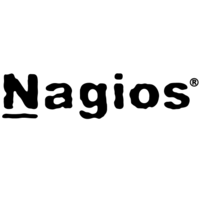Need advice about which tool to choose?Ask the StackShare community!
Checkmk vs Nagios: What are the differences?
Checkmk and Nagios are both popular open-source monitoring solutions used to ensure the health and performance of IT infrastructure. Let's explore the key differences between them:
Monitoring Approach: Checkmk and Nagios have different approaches to monitoring. Checkmk uses an agent-based monitoring approach, where an agent is installed on the target system to collect and send monitoring data to the monitoring server. On the other hand, Nagios uses a agentless monitoring approach, where it relies on protocols like SNMP, SSH, and NRPE to gather monitoring information from the target systems.
User Interface: Checkmk offers a more user-friendly and intuitive web interface compared to Nagios. Checkmk provides a modern and responsive UI that allows users to easily navigate through the monitoring configuration, view live monitoring data, and generate reports. Nagios, on the other hand, has a more traditional and less visually appealing user interface.
Configuration: Checkmk simplifies the configuration process by providing a rule-based configuration system. Users can define monitoring rules and apply them to multiple hosts, reducing the need for manual configuration. Nagios, on the other hand, requires manual configuration of each host and service, making it more time-consuming and prone to errors.
Monitoring Capabilities: Checkmk offers a wide range of monitoring capabilities, including system-level monitoring, network monitoring, application monitoring, and performance monitoring. It also supports automatic service discovery and monitoring of dynamic infrastructure. Nagios, while also capable of monitoring various aspects, may require additional plugins and configuration to achieve the same level of flexibility and functionality as Checkmk.
Notifications and Alerting: Both Checkmk and Nagios provide notifications and alerting functionality. However, Checkmk offers more advanced notification options, including flexible escalation chains, acknowledgement handling, and customizable notification templates. Nagios, on the other hand, has a more basic notification system that may require additional customization to meet specific requirements.
Community and Support: Nagios has been around for a longer time and has a larger community, which means more resources and support available. Checkmk, although relatively newer, has a growing community and active support channels, with regular updates and new features being introduced.
In summary, Checkmk focuses on user-friendly monitoring with streamlined setup and management, making it suitable for organizations seeking quick implementation and ease of use. Nagios, with its extensive plugin ecosystem and flexibility, is favored by those requiring fine-grained control and customization over their monitoring setup.
- free open source
- modern interface and architecture
- large community
- extendable I knew Nagios for decades but it was really outdated (by its architecture) at some point. That's why Icinga started first as a fork, not with Icinga2 it is completely built from scratch but backward-compatible with Nagios plugins. Now it has reached a state with which I am confident.
Pros of Checkmk
Pros of Nagios
- It just works53
- The standard28
- Customizable12
- The Most flexible monitoring system8
- Huge stack of free checks/plugins to choose from1






































